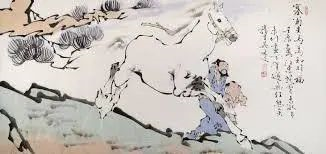Chinese Idiom Explained: 塞翁失马, 焉知非福
July 30, 2022
塞翁失马, 焉知非福 sài wēng shī mǎ, yān zhī fēi fú is a popular Chinese idiom that comes from Huai Nan Zi, Ren Jian Xun by Liu An (c. 179-122 BC), which can be literally translated as “a blessing in disguise” in English.
In this blog, we want to share with you both the Chinese and the English retelling of the original story behind 塞翁失马, 焉知非福 sài wēng shī mǎ, yān zhī fēi fú, what it means, as well as how to use it in a sentence.
Let’s dive in!

古时候塞上有一位养马的老翁。有一天,他家的马自己跑到胡人那里去了,大家都来安慰他。这位老翁说:“为什么就知道这不是福运呢”
过了几个月,他家的马带领着胡人的骏马回来了,大家都祝贺他。这位老翁又说:“为什么就知道这不是祸端呢?”
家里有钱又有骏马,他的儿子喜欢骑马,有一次从马上摔下来折断了大腿骨。大家都安慰他,老翁又说:“为什么就知道不是福运呢?”
过了一年,胡人大举侵入边塞,健壮的男子都拿起弓箭参战,塞上参战的人,十个死九个,不死的都是重伤。唯独他的儿子因为腿摔断了的缘故,父子得以保全性命。
Once upon a time, an old stableman was living around the Great Wall. One day, his horse ran off on its own towards the Hu people, a tribe inhabiting northern China. Everyone was consoling the old stableman. He said: “Why are you so sure this is not going to bring me luck?”
After a few months, his horse returned from the Hu people with one of their steeds, and everyone was congratulating the old stableman. He said again: “Why are you so sure this is not the start of a calamity?”
He now had a wealthy home with a noble steed. His son loved riding the horse, but one day he fell off the horse and broke his leg. Everyone was comforting the old stableman, and he said again: “Why are you so sure that this not going to bring me luck?”
A year passed, and a large troop of Hu people invaded the Great Wall area. These strongmen waved their bows and arrows enticing the other side to start a war. Among the people from the Great Wall area who fought, nine out of ten died, and the survivors were left with severe injuries. But because of the stableman’s son’s broken leg, he was spared from the fight, and the father and son were safe.

这个成语也说“塞翁失马,安知非福”比喻一时虽然受到损失,也许反而因此能得到好处。也指坏事在一定条件下可变为好事。
This idiom tells us that even though you might run into hardship or misfortune, there still might be a silver lining. It also means in some cases, setbacks can become a good thing.

塞上sài shàng (Border area, traditionally the area around the Great Wall)

老翁 lǎo wēng (An old man)
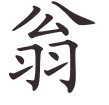
失shī (Lost) 马 mǎ (Horse)
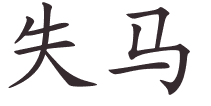
焉知 yān zhī (How is one to know?)
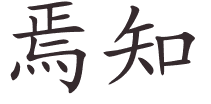
非 fēi(is not)福fú(Good fortune)
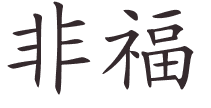
例句(Example Sentences)
这次考试不理想,也算是塞翁失马,焉知非福吧,只要让孩子认真总结教训,下次就一定能取得好成绩。
Zhè cì kǎoshì bù lǐxiǎng, yě suànshì sàiwēngshīmǎ, yān zhī fēi fú ba, zhǐyào ràng hái zǐ rènzhēn zǒngjié jiàoxùn, xià cì jiù yīdìng néng qǔdé hǎo chéngjī.
This exam was less than ideal, but it might be a blessing in disguise. As long as my child can take this lesson seriously, I’m sure next time he will get a good grade.
眼前吃点亏不用太沮丧,要知塞翁失马,焉知非福?
Yǎnqián chī diǎn kuī bùyòng tài jǔsàng, yào zhī sàiwēngshīmǎ, yān zhī fēi fú?
You don’t need to be so depressed from one mishap, it might be a blessing in disguise.

Want to learn about more Chinese Idioms? We have more in store for you!
